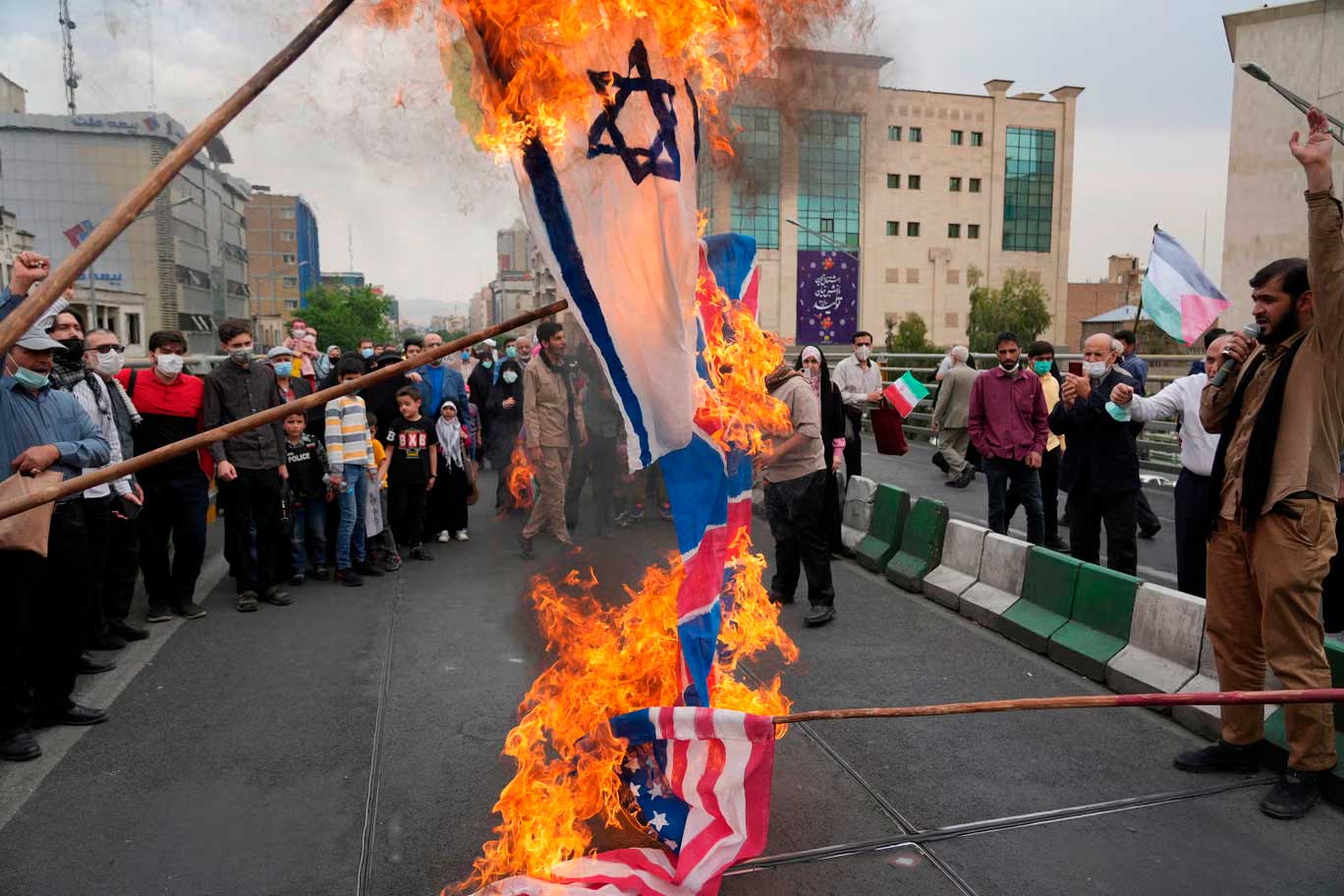
Iran celebrates "Jerusalem Day" after a two-year pandemic suspension, 2022.
Archive photo: Associated Press
The Ayatollahs Bewitched...
How Power is Structured in Iran
Georgy Mirsky, 27.06.2009
In Iran, there is still a ban on holding any demonstrations. Last Thursday, a mourning ceremony in memory of those killed during the protests was canceled. However, the opposition promises new demonstrations. Supporters of Mir-Hossein Mousavi still demand the annulment of the election results, which they consider rigged. But in Iran, there is a struggle not only between supporters of modernizing society and the tiresome "mullocracy" regime. A confrontation has also unfolded at the upper echelons of power. Who is fighting whom — The New Times investigated:
newtimes.ru/articles/detail/4192
Iran: A Beaten Future
Mila Teshaeva, 18.12.2009
At the end of the year, Iran once again felt the dramatic events of the summer, when hundreds of thousands of Iranians, dissatisfied with the results of the June 12 presidential elections, took to the streets. The protests lasted 5 days and were brutally suppressed. Now the authorities have decided to nip them in the bud. On December 7, the police dispersed a student rally in Tehran. The action was permitted, but before it began, someone displayed a supposedly torn poster of Ayatollah Khomeini in front of state TV cameras. After this, the command "attack" was given. One thing is clear: in 2009, the Iranian opposition finally emerged as a real force.
newtimes.ru/articles/detail/13379
Iran: The Middle Ages of the Third Millennium
Maxim Karasev, 12.06.2009
...Malek Korbani from the Iranian town of Nakadeh is accused of adultery. Two weeks ago, she was sentenced to public execution by stoning. If the verdict of Iran's supreme court is carried out, the execution will take place in one of Tehran's crowded squares. The New Times examined the peculiarities of the Middle Ages in the 21st century:
newtimes.ru/articles/detail/3805
Critical Mass. Will Iran Block the Strait of Hormuz?
Vladimir Ardaev, 01.02.2012
...Tension in the region is rising due to Iran's threat to block the Strait of Hormuz. Two US Navy strike carrier groups are opposed by the Iranian fleet, the most combat-ready in the region. What scenario will future events follow?
newtimes.ru/articles/detail/49178
Oil in Exchange for a Bomb
Parham Ramin, 29.01.2012
...The European Union, following the US, adopted a package of tough sanctions against Iran: an oil embargo, which will take effect on July 1, will deprive the Islamic Republic of 20% of its market, and the freezing of financial assets will limit financial maneuverability. Such a sharp turn of events seems to have affected the interests of the Iranian ruling elite. Discontent with the country's leadership is brewing within its ranks — this usually happens when politics intrudes into the realm of money and profit sharing. What to expect in this regard — NT investigated:
www.newtimes.ru/articles/detail/49041
Iran vs. Azerbaijan: The War of Intelligence
Elkhan Kuliev, 25.05.2012
...Azerbaijan is ready to reconsider diplomatic relations with Iran. The republic's intelligence services reported preventing a "series of terrorist attacks" aimed at Israeli citizens working in Baku. According to some reports, the attacks were being prepared in Iran. The New Times uncovered the details of the scandal:
newtimes.ru/articles/detail/49260
Our Man in Tehran
Sergey Khazov, 19.10.2012
Report from the Ayatollahs' domain. ..."Sergey, I changed my mind. Don't call me. Don't write. Not by mail, not on Facebook, nowhere. I'm scared. It's very dangerous. Sorry, brother, another time". This letter came a day before the flight to Iran. Then another one — with the same content. And yet another... Half of the planned meetings were canceled at the last moment. And preparing this trip was not easy: journalists are reluctantly allowed into Iran, and whoever you talk to, the first question is about permission for journalistic activity. "No? Then sorry". Requests by email and on Facebook hung in the air: the internet in Iran is controlled by intelligence services. Even emigrants in Paris, Washington, and Ankara agreed to contact only on the condition of anonymity: many have families, friends, and loved ones back home. What to do? The correspondent of The New Times spat over his left shoulder — and flew...
newtimes.ru/articles/detail/58384